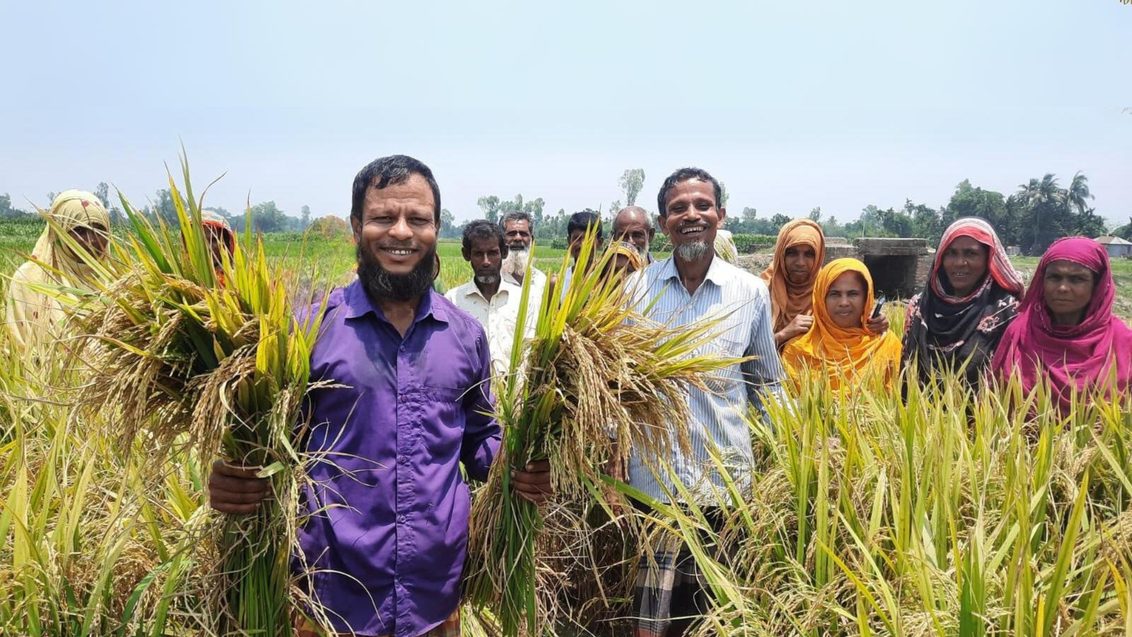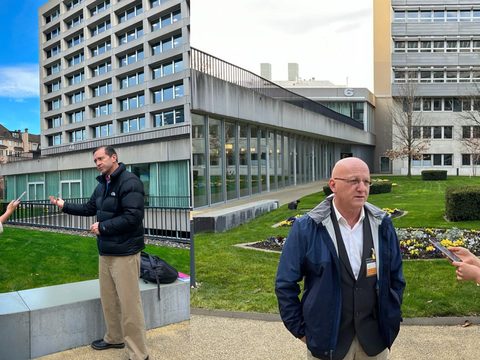Harmonizing Agriculture with Disease Control through AWD

Minimizing health risks in rice farming
In our latest webinar, we offered a comprehensive perspective on the complex relationship between agriculture and public health, with a focus on malaria and sustainable rice cultivation. Our speakers were Mark Hoppe (Public Health entomologist who works for Syngenta Professional Solutions) and Rouf Abdur (Program Development Lead at SFSA Bangladesh). Through our exploration of this often-neglected connection, we've enhanced our awareness of the potential health hazards that agricultural measures can pose, especially concerning malaria. We've also examined successful strategies to minimize these risks.
Malaria and Agriculture: An Intricate Link
Agricultural practices, particularly rice farming, can significantly impact mosquito populations and, consequently, the spread of malaria. This is linked to the lifecycle of the Anopheles mosquito, which finds the sunlit, shallow waters of rice paddies to be ideal for breeding. The connection between malaria and rice cultivation remained hindered by the 'paddy paradox'. This happens when higher mosquito populations in rice-growing villages do not initially correlate with increased malaria cases, thanks to economic benefits that afford better access to malaria interventions. However, recent data has painted a different picture, illustrating that as access to health interventions becomes more equitable, the true impact of rice cultivation on malaria prevalence is revealed—with a 1.7 times higher rate in rice-growing areas. To curb the escalation of malaria linked to farming, it's crucial to integrate agricultural and public health strategies.
AWD: A Solution from Bangladesh
Expanding on the concept of integrated methods, we can reference the experience of SFSA Bangladesh in applying the Alternate Wetting and Drying (AWD) technique in rice farming. AWD is an irrigation management practice that alternates between flooding and drying periods and addresses the triple concerns of health, climate change, and financial costs associated with traditional rice farming. However, despite achieving a 'triple win', the global adoption rate of AWD is quite low.
We provide a compelling example of successful AWD adoption in the water-stressed Barind Tract region of Bangladesh. Through various projects*, the foundation developed a holistic strategy, including the adoption of water pricing schemes (based on usage modeling), community-wide demonstrations, land leveling using laser technology, and the encouragement of crop diversification. The results have been substantial, with notable water conservation (16% less water use**), decreased costs, and improved crop yields (7% increase). Given that methane, a significant greenhouse gas is a byproduct of rice farming, AWD holds considerable promise for climate change mitigation, reducing its emissions by 37%. In terms of the association between rice cultivation and malaria and other diseases, AWD interrupts the breeding cycle of disease-carrying mosquitoes, preventing the proliferation of such illnesses.
Lessons Learned and the Path Forward
The webinar highlighted pivotal lessons:
1. Holistic Approaches: The success of AWD in Bangladesh was due to a holistic approach that involved community-based awareness, government and water service providers' engagement, and ecosystem building.
2. Integrated Disease Control: Agriculture must be practiced with awareness of its impact on vector-borne diseases, and interventions like AWD can play a crucial role in reducing the risk of diseases such as malaria.
3. Climate Smart Agriculture: CSA technologies not only improve yields and reduce costs but also have a positive environmental impact.
Our commitment to sustainable, climate-smart agriculture is now coupled with a heightened awareness of the intersection between farming practices and public health. The adoption of AWD technology in Bangladesh serves as a model for other regions facing similar challenges. As the world moves towards the WHO's goal of reducing malaria by 90% by 2030, the lessons from this webinar underscore the importance of innovative agricultural practices that contribute to disease control and public health without compromising the productivity and sustainability of farming.
Watch our webinar here https://www.youtube.com/watch?v=i3xYScvNDuw
*The Introducing Water Efficient Technologies in Barind Tract (IWET) project is sponsored by The Coca-Cola Foundation (TCCF), and co-ordinated by 2030 Water Resources Group (2030WRG).
The Climate Resilient Agricultural Advancement in Barind (CRAAB) project is financed by Hongkong and Shanghai Banking Corporation (HSBC). DASCOH Foundation has been providing local implementation support.
**Results verified by independent studies.

